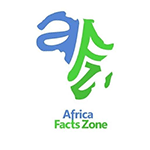Shaka Zulu’ South Africa’s Greatest Army General

Sigidi kaSenzangakhona ordinarily known as Shaka was an extraordinary Zulu ruler and hero.
He lived in a space of south-east Africa between the Drakensberg and the Indian Sea, a locale populated by numerous free Nguni chiefdoms.
During his concise rule in excess of 100 chiefdoms were united in the Zulu kingdom that survived not only the death of its founder, but later military defeats and combined efforts to destroy it.
Also Read: The Story Indian South Africans – From Bondage to Freedom
Brief History of Shaka Zulu
Shaka is the son of Senzangakhona, the ruler of a small and insignificant village in Zulu Kingdom.
His mother was Nandi, daughter of chief Langeni. Information about Shaka’s initial years is gathered altogether from oral sources.
Shaka was born into the Senzangakhona household but these parents were not married according to tradition.
Shaka’s name is said to be derived from Senzangakhona’s statement that Nandi was not pregnant but was experiencing a digestive condition brought about by the iShaka beetle.
Despite his attempts to deny Shaka as his legitimate child, Shaka Zulu’s father Senzangakhona eventually took Shaka Zulu’s mother Nandi as his third wife.
But the relationship between Shaka’s father and mother was bad and later ended with the chief banishing Nandi shaka Zulu’s mother from his father’s court.
Shaka Zulu’s mom fled to the Mhlathuze valley of the Langeni people with Shaka
At Mhlathuze shaka grew up as a fatherless child and was subjected to humiliation and cruel treatment at the hands of Langeni men.
Shaka later resided with the Mthethwa people who were one of the powerful Nguni groups and led by Chief Dingiswayo, where he found shelter in Nandi’s aunt’s house.
Also Read: Mali Empire – The Rise and Downfall of the Malian Empire
Shaka Zulu discovered new gifts
As he developed to masculinity, Shaka started to find new gifts and resources.
Obviously, he was tall and capably constructed, and his expertise and courage gave him a characteristic dominance over the young people in his age group; deep down, he was fostering a hunger for power.
Presumably when he was around 23 years of age, he was drafted into one of the Mthethwa regiments where he found a fulfillment he had never known.
Through the war of the iziCwe system, he has an agency that he did not have before, while the war zone gave an arena wherein he could show his gifts and mental fortitude.
His exceptional deeds of fortitude pulled in the consideration of his master and, rising quickly in Dingiswayo’s military, he became one of the chief leaders. At that time.
Shaka was given the name Nodumehlezi (the person who when situated makes the earth thunder).
While in the Mthethwa armed force Shaka became fascinated with issues of system and fighting strategies, and Dingiswayo contributed much toward Shaka’s later achievements in war.
Militarism was from there on to be a lifestyle for him, and a way of life that he would instill in thousands of others.
Dingiswayo’s Death
As indicated by the journal of Henry Francis Fynn, Dingiswayo’s death (c.1818) was the consequence of Shaka’s foul play/betrayal, however firm evidence for this is lacking.
It is known that when Dingiswayo fought his last battle, Shaka arrived there when his leader was captured.
Zwide later killed Dingiswayo, and, when the leaderless Mthethwa state imploded, Shaka immediately took power and started conquering the surrounding chieftains, adding their forces to his own and building a new kingdom.
The victory of the Ndwanwe
Zwide chose to crush his new opponent. After the Zulu defeated the first march on the high plan at Gqokoli Hill, Zwide in April 1818 sent all his troops to Zululand.
At this point, Shaka finished off the attackers by causing him to retreat and draw Zwide’s army into his own territory; then, after succeeding in exhausting the invaders, he threw in his own army and defeated them soundly at the river Mhlathuze. This victory destroyed the state of Ndwanwe.
Part of the primary Ndwandwe force under Shoshangane, along with the Jere under Zwangendaba, the Maseko under Ngwane, and the Msene driven by Nxaba, escaped northwards.
In 1826, under Zwide’s replacement, Sikhunyane, they again battled the Zulu, however, were completely defeated.
Also Read: How Emperor Menelik II defeated the Italians in the Battle of Adwa, Making Ethiopia the only African Country Never to be Colonized
Shaka’s rule
Shaka Zulu later had no major rivals in what is now KwaZulu/Natal.
During his short rule, which was 10 years after his last defeat against Ndwandwe, his regiments persistently went on crusades, consistently expanding their attacks further abroad while the nearby areas were taken away. and their cattle.
If a chief resisted, he was defeated and destroyed or, like the Thembu and Chunu, driven out as landless refugees.
When the head of state abdicates, he leaves the government of the country in the hands of the ruling head or another self-appointed member of the ruling family.
The Zulu Military Framework
As soon as Shaka took power, Shaka began to reorganize the army of his people according to the ideas he developed as a warrior in Dingiswayo’s army.
He had found that the traditional type of spear, the long-handled assegai that was thrown long distances, was not suitable for the heavy fighting he had in mind.
Shaka later armed his warriors with short spears and trained them to advance against their opponents in close array with long white shields carved by the body.
Discipline
Through training and discipline, Shaka developed his army, which soon became the fear of the nation.
Shaka restricted the wearing of shoes, hardened his warriors’ feet by making them run shoeless over hard and thorny ground, and thus ensured their mobility. His battle cry is “Victory or Death!”
The Royal Women
The regal ladies/The royal women. Each village had a section of royal women led by a formidable woman, usually one of Shaka’s cousins.
However, Shaka was afraid to produce a legitimate heir. He had no wife, and women viewed as pregnant by him were killed.
In the absence of the king, the induna who is the king’s favorite usually shares administrative powers.
Impacts of Shaka’s conflicts
His war involved great carnage and inspired many foreign nations because they were afraid of Shaka, Some say that during his reign, Shaka killed more than a million people.
The Shaka Wars between 1818 and 1828 contributed to the forced migration system known as Mfecane, Difaqane, Lifaqane, or Fetcani.
Also Read: The San People Africa: World’s Most Ancient Race
Death of Shaka Zulu
Taking advantage of his lack of troops, on September 22, 1828, his bodyguard Mbopha, along with his brothers Dingane and Mhlangana, ambushed Shaka near his camp at Dukuza and killed him.
As Emperor Shaka’s life declined, he cried out to his brother Dingane:
According to family members, Shaka’s last words were:
“Hey brother! You kill me thinking that you will rule, but the swallow will” He is talking about the white people
“Are you stabbing me, kings of the land? You will end up killing each other.
They quickly buried his body in a nearby corn pit. Dying without an heir, Dingane succeeded him, but Shaka’s prophecy upset him and since then he has been suspicious of the whites.
Under the successors of Shaka, Dingane, Mpande and Cetshwayo, Zulu rule had a profound effect on the course of South African history.





